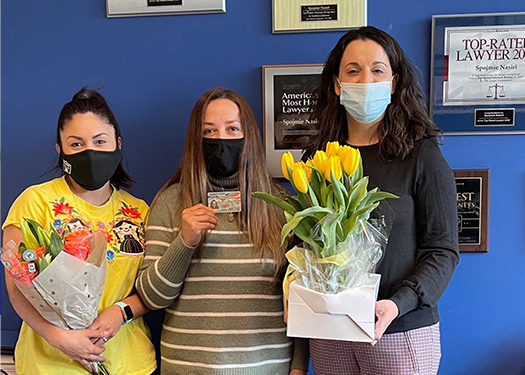Parole in place is a way that immediate relatives of military service members or veterans can apply for a green card after illegally entering the United States. Parole in place gives applicants the temporary right to remain in the United States, in 1-year increments. Upon approval of parole in place, the applicant can then apply for adjustment of status, ultimately acquiring their green card without having to go abroad for consular processing.
To apply for parole in place, applicants must:
Those who enter the United States illegally are typically designated as "inadmissible" for adjusting their status. If they are a close relative of a US citizen, they can apply for status, but must first leave the country and go through consular processing. If approved, they are often penalized with a 3- to 10-year ban on re-entry, because they initially entered the United States illegally. However, parole in place removes this ground of inadmissibility and exempts applicants from the re-entry penalty. Once approved, parole in place grants immediate family members the clearance to apply for a green card without having to leave the country, and prevents them from being deported.
Parole in place is a discretionary program through USCIS, and is granted on a case-by-case basis for urgent humanitarian reasons or significant public benefit. It does not guarantee that the applicant will receive a green card. When granted, parole in place is considered a lawful immigration status and enables the applicant to apply for several immigration benefits, such as applying for a work permit.
To be eligible for parole in place, the applicant must be an immediate relative of a military service member. This includes the spouse, widow(er), parent, or son/daughter of an active-duty service member or veteran of the United States Armed Forces or the Selected Reserve of the Ready Reserve.
Parole in place is granted in 1-year increments. Applicants who are granted parole in place can re-apply after 1 year, or may apply for a green card (adjustment of status).
If you have previously been admitted to the United States but are current present in the US beyond the period of authorization, you are not eligible for Parole in Place. However, you may qualify for deferred action.
To apply for parole in place, applicants must provide the following documents:
• Completed Form I-131 (with "Military PIP" written in Part 2)
• Evidence of relationship as a spouse, widow(er), parent, son, or daughter of military service member
• Evidence of family member's military service (such as DD Form 214 or military ID card)
• Two copies of a color photograph showing the head and shoulders of the applicant
• Any evidence for additional favorable factors to be considered
Applicants who are the parent of a military service member or veterans must also provide evidence that the member supports their application for parole in place.
Yes, once you have received approval for parole in place, you can then apply for adjustment of status.
Applications for parole in place can be denied if the applicant has a criminal conviction or has other "serious adverse factors". Additionally, parole in place is approved solely on a discretionary basis, for urgent humanitarian reasons or a significant public benefit. So, if USCIS is not convinced the applicant deserves to be approved for parole in place, their application may be denied.
Yes, parole in place is considered a temporary lawful immigration status which grants applicants the ability to apply for several immigration benefits, including a work authorization.
